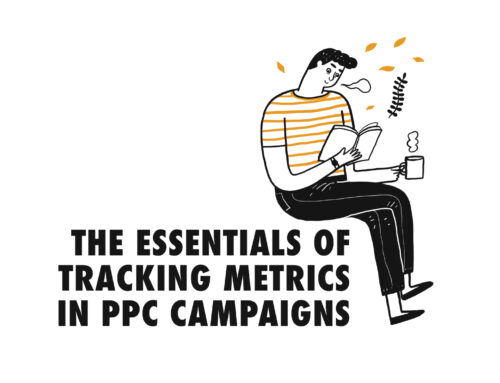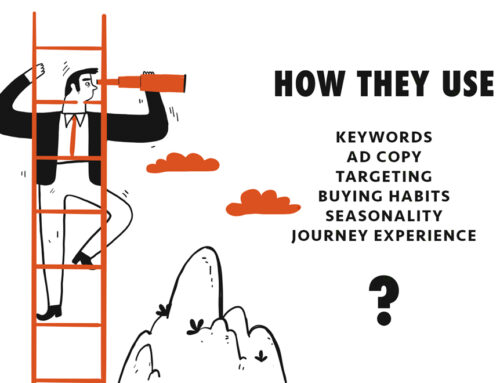Avoid These Pitfalls When Managing Google Ads PPC Campaigns
Key take-aways:
- Properly setting up and monitoring your campaigns is essential for success in Google Ads.
- Stay up to date on changes to the platform, including new features, policy updates, and ad formats.
- Use tools and software to help optimize campaigns and reduce the amount of manual work required.
- Outsource services to marketing agencies and consultants who specialize in managing Google Ads campaigns.
- Take advantage of conferences and trainings to stay up to date on best practices for managing campaigns.
- Search for digital marketing agencies and consultants in your area that specialize in Google Ads campaigns.
Why do mistakes in managing Google Ads campaigns happen?
Mistakes in managing Google Ads campaigns often happen due to lack of experience with the platform, not understanding all of the features available, and not taking the time to properly set up and monitor campaigns. Without a proper understanding of the platform and its features, it’s easy to make mistakes that can have a significant impact on the success of your campaigns.
Keep in mind changes and updates to Google Ads platform
Google Ads is constantly updating its platform and adding new features and ad formats. This can make it difficult to stay on top of the changes and ensure that you’re taking full advantage of the new features. Additionally, Google Ads has strict policies in place that must be followed to ensure that your campaigns are compliant with the platform’s terms of service. Failing to stay up to date on policy changes can result in your campaigns being suspended or disabled.
5 common mistakes with Google Ads campaigns
- Not setting up conversion tracking
Setting up conversion tracking in Google Ads is the first step to successful campaign management. It can take some time to properly configure conversion tracking and get validation from Google, but once it is set up, you can begin to track and optimize your campaigns for better performance. Without proper tracking, you won’t be able to measure the success of your campaigns.
If you do not set up conversion tracking in Google Ads, you will not be able to:- Track the success of your campaigns.
- Determine whether or not your ads are driving leads and sales.
- Make informed decisions to optimize your campaigns for better performance.
- Identify which keywords and placements are most effective in driving conversions.
- Adjust bids and budgets accordingly.
- Measure the return on investment (ROI).
- Not setting up negative keywords
If you don’t include negative keywords, your ads will show up for irrelevant searches and drive up your costs without leading to conversions.If you do not set up negative keywords in your Google Ads campaign, your ads may be triggered by irrelevant searches that are not relevant to your business. This will result in your ads being served to people who are not interested in what you are offering, resulting in a lower click-through rate, higher cost per click, and a reduced return on investment (ROI).If you are selling low-fat, sugar-free, vegan ice creams, it is important to use negative keywords in your marketing strategy. For example, you may want to avoid words like “high-fat,” “high-sugar,” and “non-vegan” to ensure that your ads are reaching the right customers. - Not optimizing landing pages
If your landing pages are not optimized for conversions, you may be losing out on potential customers.If you do not optimize your landing pages for Google Ads, you will likely experience lower clickthrough rates, higher cost per click, and decreased conversions. This is because Google Ads rewards pages that are optimized for relevant keywords, are easy to navigate, and have a clear call to action. Without optimization, your landing pages may not be able to meet these criteria, resulting in lower performance.You can check if your landing page is properly optimized for Google Ads by using the Google Ads Page Experience tool. This tool will check your page for various elements of optimization, such as responsiveness, loading speed, and the overall user experience. It will then generate a score and provide recommendations for improvement.The factors that determine if the landing page is properly optimized for google ads:- Relevancy – The landing page should be relevant to the ad that is linked to it.
- Quality Content – The content on the landing page should be well-written and informative.
- Keywords – The page should include relevant keywords that match the ad and the query.
- Mobile-Friendliness – The page should be optimized for mobile devices.
- Call-to-Action – The page should have a clear call-to-action that encourages users to take the desired action.
- Design and Usability – The page should be aesthetically pleasing and intuitive to use.
- Not taking advantage of remarketing
Remarketing allows you to target users who have already interacted with your business in the past.If you do not take advantage of remarketing in Google Ads, your ads will not be seen by users who have already visited your website or interacted with your ads. This will limit the reach of your ads and reduce the chance of potential customers returning to your website. Additionally, you will miss out on the opportunity to target potential customers with more relevant ads based on their previous interactions with your website or ads.The types of remarketing in Google Ads include:- Standard remarketing – Targets visitors who have previously visited your website.
- Dynamic remarketing – Targets visitors who have previously viewed specific products or services on your website.
- Remarketing lists for search ads (RLSA) – Targets visitors who have previously searched for certain keywords or phrases on Google.
- Remarketing for mobile apps – Targets visitors who have previously used your mobile app.
- Video remarketing – Targets viewers who have previously watched one of your YouTube videos.
- Customer list remarketing – Targets customers who have previously made a purchase from your website or completed a lead form.
The channels that can be used for remarketing in Google Ads include: Google Ads (Search, Display, and Video), YouTube, Gmail, and the Google Display Network.
- Not monitoring your campaigns
You should regularly review your campaigns to make sure they are performing as expected and to make any necessary adjustments.If you do not monitor your campaigns in Google Ads, your campaigns will not be optimized for performance, and you may end up wasting money on ineffective ads that are not reaching the right audience. Without monitoring, you will not be able to identify and address issues that could be impacting your campaigns, such as low-performing keywords, ad copy, or targeting settings.The best practices to monitor campaigns in google ads:- Set up conversion tracking: Make sure you are tracking the performance of your campaigns by setting up conversion tracking. This will allow you to measure the effectiveness of your campaigns and to optimize your campaigns for the best results.
- Monitor keyword performance: Monitor the performance of your keywords to determine which ones are driving the most conversions. You can also use this data to identify low-performing keywords and adjust your bids or pause them altogether.
- Check your ad copy: Regularly review your ad copy to make sure it is still relevant and up-to-date. You should also test different ad copy to see which performs better.
- Analyze your target audience: Analyze your target audience to determine whether you are reaching the right people and if there are any potential opportunities for improvement.
- Track your budget: Track your budget to ensure that you are not overspending on your campaigns. Make sure you are setting daily budget caps and monitoring your spend closely.
Seven tools to monitor campaings in google ads:
- Google Ads Editor: Google Ads Editor is a free tool offered by Google that enables you to manage and optimize your campaigns.
- Marin Software: Marin Software is a paid PPC optimization tool that provides analytics, reporting, and optimization capabilities.
- Optmyzr: Optmyzr is a PPC optimization tool that provides automated optimizations, testing, and reporting capabilities.
- Adalysis: Adalysis is a PPC optimization tool that provides automated optimization and reporting capabilities.
- Wordstream: Wordstream is a PPC optimization tool that provides automated optimization, testing, and reporting capabilities.
- AdEspresso: AdEspresso is a PPC optimization tool that provides automated optimization, testing, and reporting capabilities.
- Google Analytics: Google Analytics is a free tool provided by Google that provides detailed analytics and reporting capabilities.
How a business can prevent google ads from mistakes?
Businesses can prevent mistakes in their Google Ads campaigns by taking the time to properly set up and monitor campaigns. This includes researching the platform and its features, setting up conversion tracking, setting up negative keywords, optimizing landing pages, taking advantage of remarketing, and regularly monitoring campaigns. Additionally, businesses should stay up to date on changes to the platform, such as new features and policy updates. By taking these steps, businesses can ensure that their campaigns are optimized for success.
Participating in conferences and trainings can be a great way to stay up to date on the latest changes to the Google Ads platform and to learn best practices for managing campaigns. Additionally, businesses can outsource services to marketing agencies and consultants who specialize in managing Google Ads campaigns. Finally, businesses can also use automated solutions such as software and tools to help optimize campaigns and reduce the amount of manual work required.
Optimizing Your Google Ads Campaigns for Success
Google Ads campaigns can be a great way to generate leads and drive sales, but it’s important to properly set up and monitor campaigns to ensure success. It’s important to stay up to date on changes to the platform, including new features, policy updates, and ad formats. Additionally, businesses should take advantage of tools and software to help optimize campaigns and reduce the amount of manual work required. Outsourcing services to marketing agencies and consultants who specialize in managing Google Ads campaigns can also be a great way to ensure success. Finally, businesses can also attend conferences and trainings to stay up to date on best practices for managing campaigns. By taking these steps, businesses can ensure that their campaigns are optimized for success.







